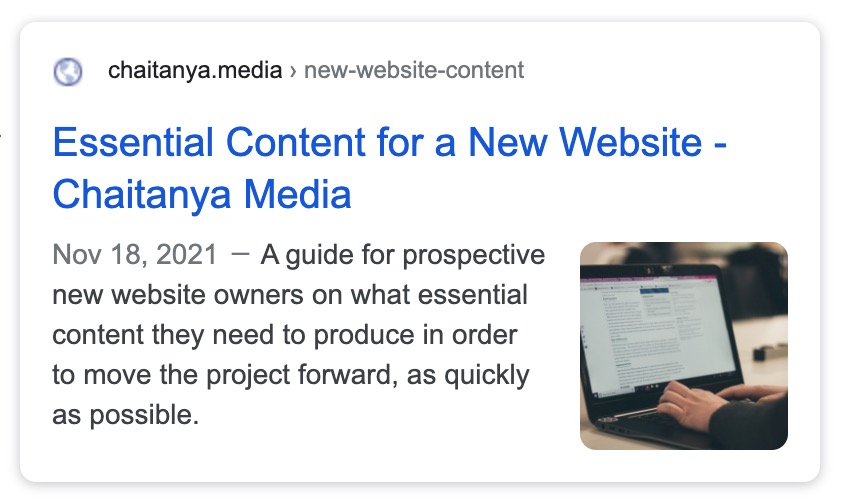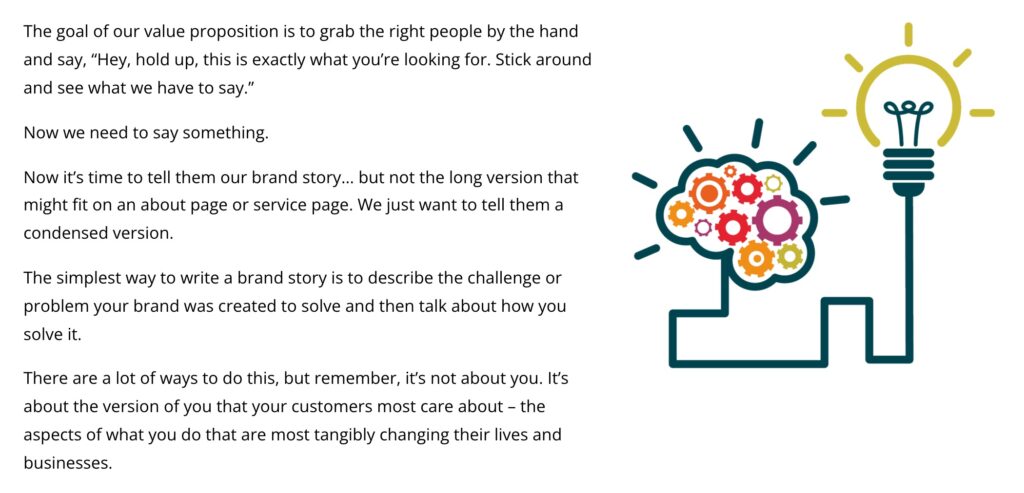Writing is hard. Writing about yourself and your business is even harder. But you want a new website, right? So it’s got to be done. Here we’ll outline exactly which pieces of content you should prepare before commissioning a new website. And we’ll give you some hints and strategies for making it as painless as possible.
Why do you want to get this content written before commissioning a website? There are a few reasons. First, it means there won’t be any delays in the project as the designer waits for you to get your stuff together. Second, it will really help the designer get a feel and understanding of your brand clearly. Third, it saves the hassle of using dummy text and then having to go through it all and replace with actual text at a later date which is fiddly and annoying for all involved.
Start With Why
If you’ve been under a rock for the last few years, then you can watch Simon Sinek’s seminal TED Talk “How Great Leaders Inspire Action” on the TED Website. Nailing your ‘why’ takes a fair amount of effort. It’s difficult, but it really has to be done. But once you’ve done it, you’ll be able to produce the rest of your content much quicker and more efficiently. It gives you the foundation on which all your other words can rest.
Once you can communicate your why in one or two (maximum) sentences, you are ready to move on.
Elevator Pitch
An elevator pitch is very similar to your ‘Why’, just fleshed out a little more to give the listener all the information they need as succinctly as possible. Therefore, we’d suggest making this the second piece of content you craft. Here are links to a couple of good articles about elevator pitches from Asana and HubSpot.
SEO Basics
Before thinking about the actual content that will appear on your site, I recommend you make a list of the ‘search terms’ (what people are typing into Google) that will bring them to your site. Make two lists - one of ‘brand terms’ and one of ‘generic terms’.
I.e. if you are a breathworker, the brand terms may be your own name or the name of your business. And the generic terms will be words like ‘breathwork facilitator Lisbon’, ‘trauma therapist Lisbon’, etc.
You don’t want these generic terms to be too broad or you’ll end up competing with the wrong people. I.e. ‘breathwork’ by itself can cover all sorts of informational intent, rather than an actual potential client looking for exactly what you offer.
For now, though, don’t worry about getting it right or wrong, just mainly focus on brainstorming and building a usable list.
Homepage Essentials
Page Title
Crafting this short sentence is not only super important for SEO, it’s also likely to be the first touch point with your brand, not on the page itself, but in the Google results.
The page title length should be 60-65 characters.
Here you can see the page title as it appears in Google search results for this very post.

Page Description
Much in the same way as the page title, you need to use this real estate to really pitch your services or offering. This is basically the same as your 'elevator pitch'.
What will be the first words your visitors see when they arrive on your homepage? If you haven't thought about it, well it's about time.
The 'meta description' or page description can be any length. However, Google truncates the text in the search results after about 160 characters. Therefore, we recommend the page description is between 155 and 160 characters.
Brand-Focused Value Proposition
This is the headline that will form part of the ‘hero image’ on the homepage and will be the first words your visitors read. Again - you need to get this right. Here’s a great article from the HelpScout website on how to write a Value Proposition, with 6 modern examples.
Condensed Brand Story
This is your opportunity to say a little more about you - who you are, what you do, why you’re the right person, your ‘USP’ etc. This text can be a shortish paragraph.

Testimonials
Testimonials from your existing clients add social proof to your offering in a timeless and interesting way. They are essential.
Therefore, it’s not too soon to collate some good ones because, for sure, you will need them. And if you don’t have any yet, then now is a good time to reach out to your clients with that ask.
They can range from a couple of sentences up to about 200 words. Unless you really want to make a case study out of one of them, then they really don’t need to be very long. Here’s a great article on 5 Steps to Getting Top-Notch Testimonials From Your Clients.
Great (Free) Resources Online
Jacob McMillen's Complete Guide To Website Copywriting (2021 Edition)
This is an absolutely essential read for anyone crafting content for a new website, jam packed full of great advice.
Yoast's How to write a blog post: A step-by-step guide from preparation to publication
Does what it says on the tin!
Carmine Mastropierro's The Ultimate List Of The Best Copywriting Resources
This is a veritable treasure trove of copywriting resources. All of them are free and instantly available.
ProWritingAid
ProWritingAid is the best tool available for helping you to craft beautiful writing. It's more cost effective than Grammarly and a much better tool. It integrates everywhere you write, including web browsers, so it's always there when you need it. Highly recommended.


